Joost Vandebrug: “Bruce Lee and The Outlaw” was my life
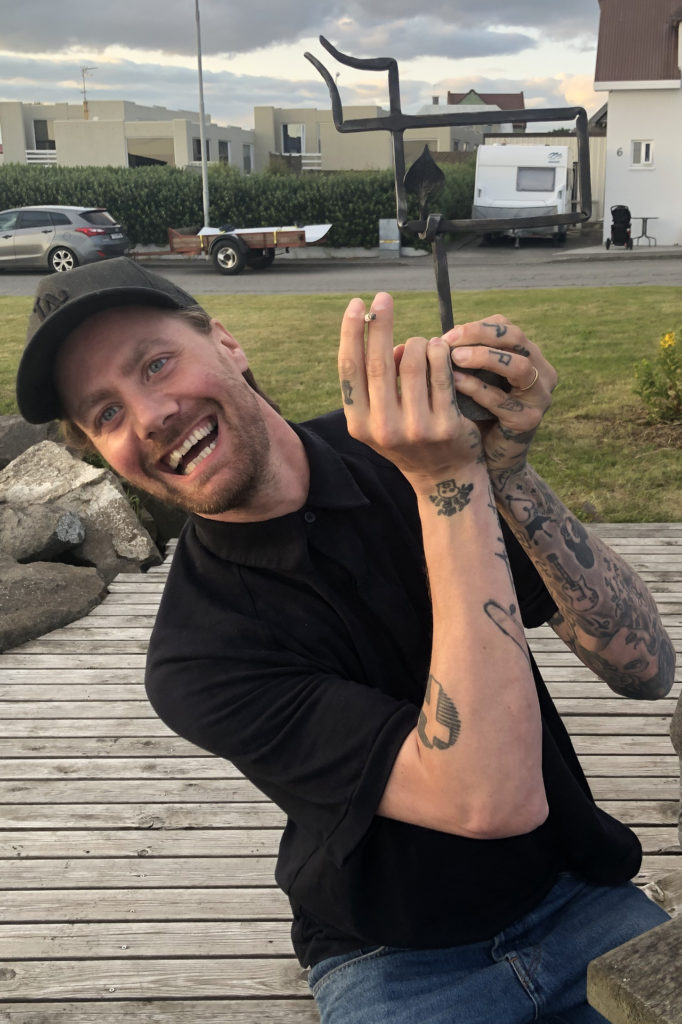
Photo by Emma Mortimore
Joost Vandebrug is a Dutch photographer based in London and Antwerp, whose photo project from the streets of Bucharest grew into a feature-length documentary film Bruce Lee and the Outlaw. The film is now reaping awards on its festival tour and it also won the main prize at the first edition of IceDocs, where we had the opportunity to sit and talk with the director.
You are not a filmmaker by trade, you are a photographer and you just the inspiration from a photo project to convert it to an observational, but not strictly observational documentary film. How the creative process went?
I’ll start with a beginning. As you said, I was in Bucharest as a photographer, I just wanted to get some inspiration, to get out of London. I was walking around and taking photos of the people I met on the streets, some of them were homeless, some weren’t, it wasn’t necessarily that I was looking for that, for shooting portraits. There was a boy I took some portraits of, his name turned out to be Costel. He was on the same spot the day after and I always develop my photos right away to try to find that people on the streets the day after to give back to them. So I found him again, gave him the photo of himself, show him the new photo, and I repeated that for a few days. And then he asked me if I wanted to see where he lived, in the tunnels under the streets of Bucharest and that’s where it started.
The first time I went into the tunnels I realized that there is such an incredible situation, not yet story, and that I felt that if I was welcome there I would like to go back. And then I met the Bruce Lee guy in the tunnel, he was the leader and he was really happy to meet me, he really wanted to show me his tunnel and the people that he lived with and where he did all his cooking there, where he made all of his facilities. So, I was welcome to come back and I did, so I started to follow that group as a photography project first, but photography and film were always very close to each other in my work. There was not a harsh line between photographs and filming, so it gradually turned into a film project as well. I started documenting this group on several different cameras, including film cameras, and you can see the result.
How and why did Nicu become the protagonist of your work?
He was not initially, I was focusing on the entire group and on the whole system of tunnels, it was simply so amazing, so incredible to be there. Then after maybe two years, Nicu got really ill, as you could see in the film, and it was quite a significant moment in his life, and in mine, really, and it was quite obvious that if wanted to make a film and to zoom in on someone and tell the story through him, that had to be him. He is funny, he went through a significant period in his life, 12 to 18 years, plus he nearly died at one point, he was rescued by Raluca, the social worker, so there was quite a lot of things to show. That’s how he became a protagonist, but only after years of already shooting.
There were no trust issues between you and your subjects?
No, not big ones. Because Bruce trusted me, he told everyone that I was OK, and that I should be left alone, that they shouldn’t be stealing from me and of course that there were people occasionally who didn’t really trust me, who didn’t know what was going on. And I wasn’t always able to come to them because of the language. I think the trust is about proving yourself and over time I proved myself to them to be OK.
You did it on different equipment, different formats… Was that a deliberate choice or was it just convenient to do it that way.
I tend to get too technical in my work, it doesn’t necessarily show, but that’s how I do it, but on another level I was comfortable to drop it, I was comfortable to do it with small cameras. Was it a choice? Yes and no. As a photographer, I strongly believe in a moment and the connection you have, not in lens or I don’t know, I don’t feel strongly about that and I translated it on the film. I quite enjoyed trying different formats and different techniques employed in the film.
Can you explain the differences in the pitch of voice and how you made them not to be heard? I mean, it’s a significant period in someone’s life, puberty…
Ah, yes. The voice breaking. It just happens, doesn’t it. I realized that the best voice-overs of Nicu were the ones that were recorded accidentally, while he was watching himself, while he was just dreaming, or in the car… Hardly ever ones that I would sit down with him to try to do proper voice-overs. That never really resulted in the best lines. As a result of that, the whole voice-over was shot over the period of six years when the voice is breaking. So I was very concerned about that. When I listen to the early voice-overs it is so clear that there is a change. But there was nothing I could really do, it had happened. I couldn’t re-record it, but it wouldn’t be the same, you never get the same emotion and the way he said it for the first time. He is not an actor. So we just lived with it and in the audio post-production we pitched it a little bit, but the difference is still evident. For me. If I haven’t mentioned it, no one would have noticed in the film. You just know it’s Nicu throughout and that is what we wanted to do.
Non-linear editing… Was that the natural think to do?
I find very linear actually because it follows Nicu from when he was twelve to when he was 18. The only thing it breaks the line is his 18th birthday with which we start.
I found it pretty non-linear, I wasn’t totally oriented what happens when, because he also reflects on his childhood, dreams… You still find it linear?
Yes, but there also different layers of it, there is dreaming in it, memories in it. The dream sequences with the snow are super-deliberate obviously and we want to get close to him and I wanted to have a sense of snow in there, which is significant for a child: the snow is something you can play with, but after you go home, you have to take a warm shower and change your clothes. For someone who is homeless, that is an entirely different ball game. But also his relationship with snow changed over the years and I wanted that in there. The reason you don’t find it linear is the material that we had to deal with. The hospital and before that, I wasn’t shooting that as a filmmaker, but as a photographer, I wasn’t focusing on Nicu, I wasn’t thinking about cutaways, the establishing shots, sequences… We had to work with what we had and it kinda helped the film to speak the language that it speaks now. It’s bumpy, you will love it or you will hate it.
The other thing I really liked were your instincts, both on filmmaking and ethical level: when to get involved, when to let the situation happen by itself. Those were split-second decisions. How it felt? Was it hard for you?
I wasn’t there as a filmmaker. If I was there as a filmmaker who is going after this project purely to make a film… I would probably arm myself, defend myself from certain emotions to get to me. It was too late for me, I was already in. When Nicu went to the hospital, I brought him. I stayed with him because it was the only way for him not to run away. Nothing was more important than him, not a film, not a photography project. When people ask me if it is the right thing for a filmmaker to intervene, to take someone to a hospital, I respect that question and I find it a very good topic to talk about as filmmakers and it could lead to other things, but I had never to make that decision. For me, there was no choice, if there was a sick child, I would take it to the hospital.
Did you keep in touch with the people from your film even though you don’t live in Bucharest anymore?
I was there last week and, for example, whenever I win an award, that money goes to Raluca and her NGO, it is never some huge amount, but she opened her life for seven years for me and that is the smallest thing that I could do. She is completely independent, no government funding for her, just some small private funds. I have even put a fundraiser on the movie site, all the money goes straight to her, but you know, it is not millions going there. No big money in documentaries, but I thought it was important for her to get some money out of it.
Are you planning to do a film again after this? Not even if inspiration suddenly hits you?
No, This is not a film. It was my life. I know it sounds a bit dramatic, but… Even my editor told me “With all the stuff you learned, you can’t just drop it!” But I don’t know…













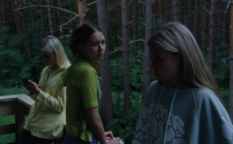
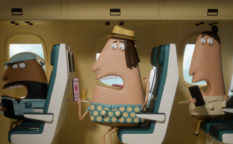
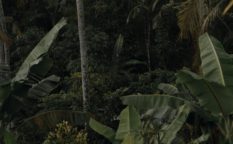
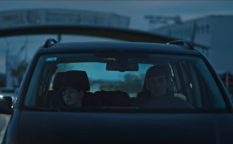
2019-09-18 @ 05:06
How can I watch this film?